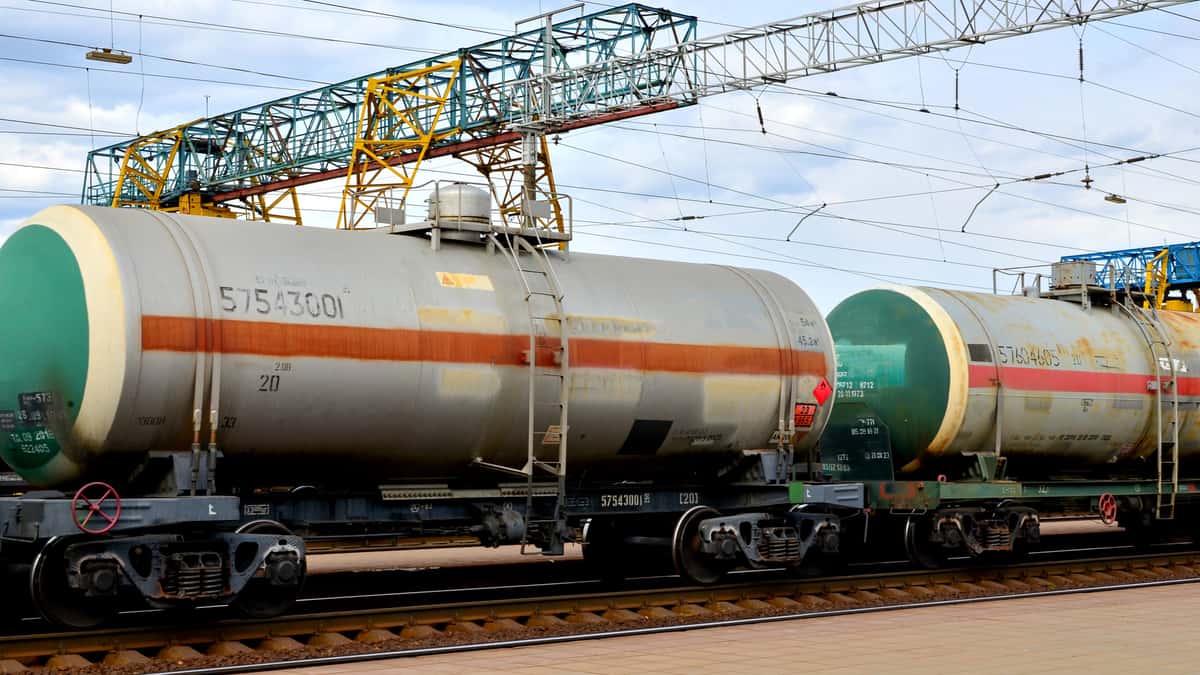The Pipeline and Hazardous Materials Safety Administration (PHMSA) has granted a special permit to Energy Transport Solutions (ETS) to haul liquified natural gas (LNG) by rail, stoking objections by some members of Congress who have expressed concerns over safety.
ETS, a logistics subsidiary of New Fortress Energy (NASDAQ: NFE), applied for the special permit in 2017. The company seeks to use specialized cryogenic railcars designed for supercooled liquids. Regulations currently prohibit using these types of railcars to haul LNG.
“News of PHMSA’s decision to jump ahead of its notice of proposed rulemaking on moving LNG by rail and grant a special permit to Energy Transport Solutions, LLC to move LNG by rail tank car is deeply disturbing. This reckless move by the [U.S. President Donald Trump] Administration puts communities in harm’s way,” said Rep. Peter DeFazio (D-Oregon), who is also chair of the U.S. House Committee on Transportation and Infrastructure.
According to the permit granted on Dec. 5, ETS has been authorized to transport methane and refrigerated liquid, which includes LNG, in U.S. Department of Transportation (DOT)-specified 113C120W tank cars. The permit, which will allow shipments between Wyalusing, Pennsylvania, and Gibbstown, New Jersey, expires on Nov. 30, 2021.
DeFazio said PHMSA rushed through the permitting process too quickly. On Sept. 12, he and U.S. Rep. Tom Malinowski (D-New Jersey) introduced a bill requiring extensive reviews on the safety and operational practices of using tank cars carrying LNG before any approval is granted.
“Not only has PHMSA failed to take the proper steps of testing, analyzing or reviewing this unprecedented plan, it failed to provide Congress and the public the opportunity to consider whether the permit’s operating conditions sufficiently address the potential safety implications – an opportunity that’s required by law. The agency rushed its job, spending a measly six months considering this petition and the nearly 3,000 public comments it received,” DeFazio said.
In a Dec. 5 final environmental assessment, PHMSA said transporting LNG via rail as an alternative to transporting LNG via MC-336 cargo tanks on the road, and it “would provide a more cost-efficient mode of transport and reduce the environmental impacts of transporting LNG.”
The agency also said existing regulatory requirements that govern the movement of flammable materials similar to LNG are expected to provide adequate safety measures for LNG shipped in DOT-113C120W tank cars.
The special permit requires trains transporting 20 or more tank cars to have a two-way end of train device, with each car remotely monitored for pressure, location and leaks. ETS must provide training to emergency response agencies along the train route, as well as fulfill reporting requirements to PHMSA.
ETS has said it plans to move multiple sets of 100-car unit trains of LNG in rail tank cars.
The Trump Administration has been eager to export LNG. PHMSA and the Federal Railroad Administration (FRA), both agencies within the U.S. DOT, issued a notice of proposed rulemaking on Oct. 18 to allow railroads to move LNG via tank cars. The agencies said the notice is result of President Trump’s executive order recognizing the growing role of the U.S. as a producer of LNG in both domestic and international markets.
The special permit and related documents have been added to the docket for the proposed rule since the permit and the proposed rule have overlapping issues. Comments on the operational controls discussed in the special permit can be submitted to the proposed rule’s docket by Dec. 23. PHMSA will consider those comments as it deliberates on the proposed rule.











SD Cline
What country is the picture from? Not the US!